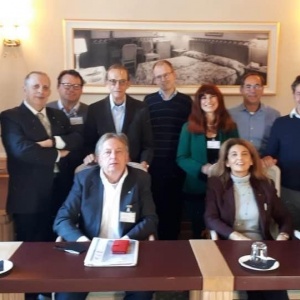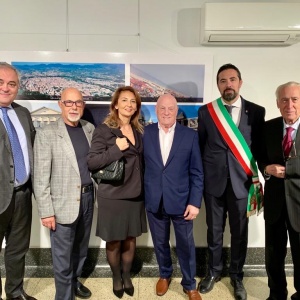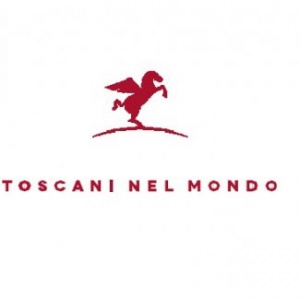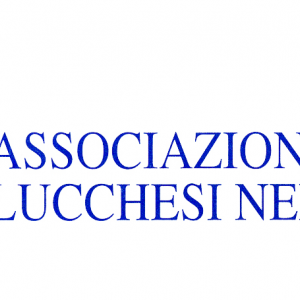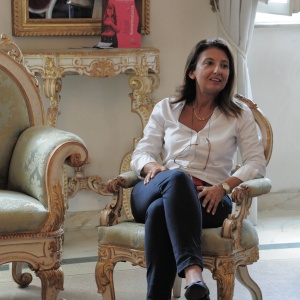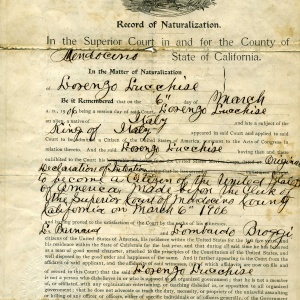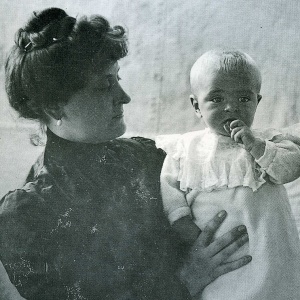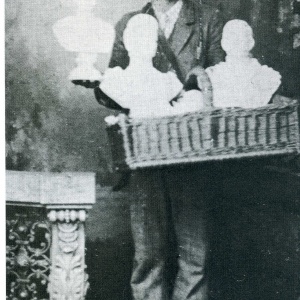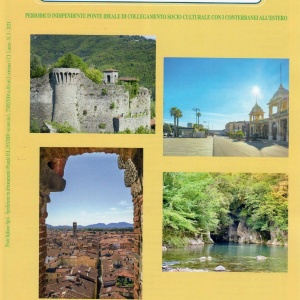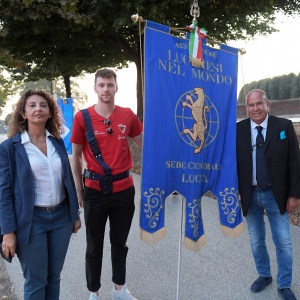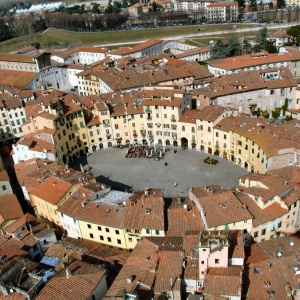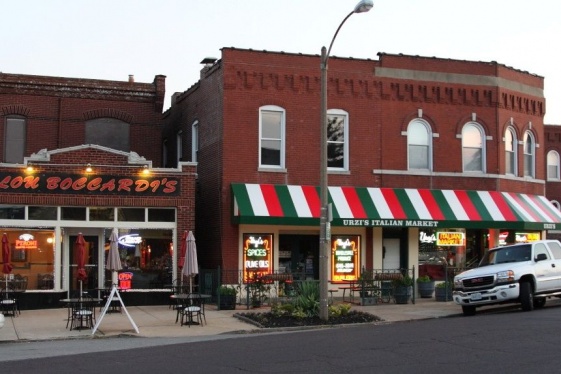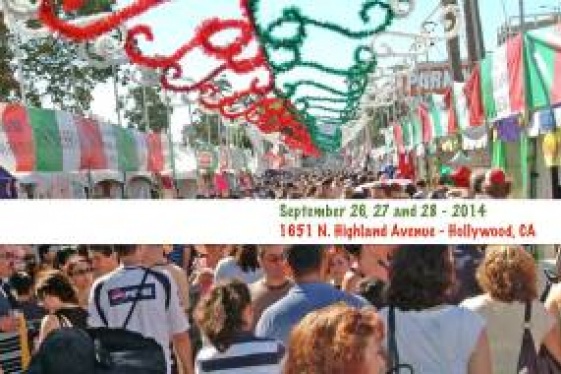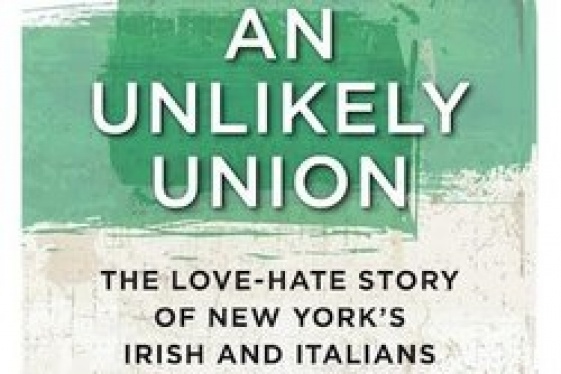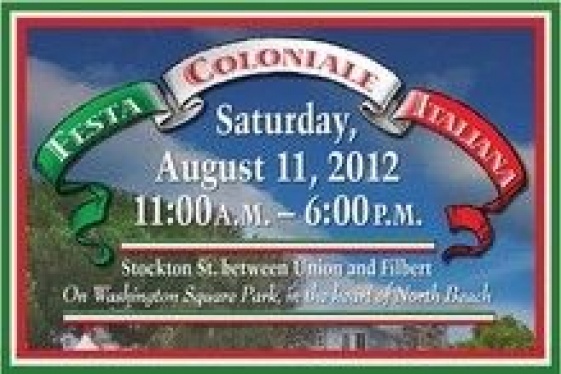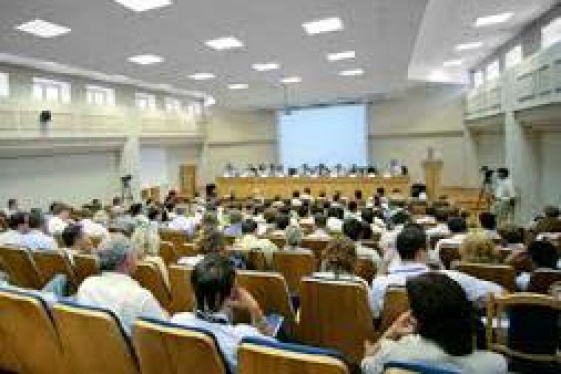
Ilaria Del Bianco (President of the "Lucchesi nel mondo" Association)
L'emigrazione italiana, toscana e lucchese: incontriamo Ilaria Del Bianco

The protagonist of this new interview is one of the most important personalities among those who deal with Italian emigration abroad. Ilaria Del Bianco was President of UNAIE, the National Union of Immigrant and Emigrant Associations. She is a member of the Bureau of the Council of Tuscans Abroad, and President of the "Lucchesi nel mondo" Association.
Her experience is very important and interesting to tell the stories of those who left Italy, and at the same time to describe how the different parts of Italy relate to their descendants abroad. Italy and its diversity, made up of a thousand different approaches and traditions, is confirmed as the place of very different and fascinating local authorities. We thank Dr. Del Bianco for this interesting journey, which, we are sure, will also be appreciated by our readers.
What is UNAIE, the National Union of Immigrant and Emigrant Associations?
UNAIE is an association that currently coordinates the activities of multiple associations that deal with immigration and which have a regional or provincial territoriality as their characteristic, from different parts of our country.
A kaleidoscope of institutions has arisen, some more than 50 years old, all united by being volunteer associations. Both in the area where their offices operate and abroad, they have for some time now built their own identity and work for the promotion of communities in the world: for the maintenance of ties, for the facilitation of relationships and to facilitate those who even today, driven by the desire to find new and better study and / or employment opportunities, go abroad.
UNAIE holds the role of political spokesperson for all these associations that make it up. Both I, as former President of UNAIE until last November, and the current President, Oscar De Bona, are within the General Council of Italians Abroad, where we have brought the requests of our communities and shown together how this type of association can represent a great opportunity to promote Italy in the world. UNAIE is also a place for sharing experiences and best practices between organizations that operate in different ways and where, due to this characteristic, partnerships, initiatives and common projects for the promotion of the beauty and excellence of their territories abroad can be born.
What are the main differences regarding the approach with their citizens abroad, between the different Italian regions?
In our country there is a great difference between one territory and another: on the one hand there are regional realities, on the other autonomous provinces. For example, the autonomous province of Trento supports the Associazione Trentini nel Mondo, which are distinguished from other associations by their being rather oriented towards international cooperation: the Trentini nel Mondo have vast communities, real enclaves, in South America, and in Eastern Europe.
The province of Belluno and the Veneto region have also invested heavily in the Association of Bellunesi nel Mondo: they are the owners and managers of an important and technologically advanced museum, the MiM of Belluno, and a library, dedicated to Dino Buzzati.
The Ragusans, on the other hand, stand out because they have as the spearhead of their activities the organization of a prize dedicated to Ragusans abroad, similar, for those who are familiar, to the prize that the Lucchesi nel Mondo first established, more than 50 years ago for all the people of Lucca who distinguished themselves abroad. A very popular event in Ragusa - I had the opportunity to be present in 2018 - takes place in the main square of the city in the presence of more than 2000 people.
Then there are the Abruzzesi who have an even different type of activity, and again the varied panorama of associations in Friuli Venezia Giulia.
We can undoubtedly say that each of the associations present in Italy has its own line of activities and the importance of UNAIE is precisely that of gathering them all under its umbrella, creating a favorable environment for the exchange of ideas and projects, and consequently, for the enrichment of individual associations.
An example of this is the establishment, now dating from a few years ago, of a social network that our Association, Associazione Lucchesi nel Mondo, created for the people of Lucca abroad, adapting a project of the people of Belluno nel Mondo to our organization.
If, on the other hand, we move from the communities of departure to the places of arrival, given that our focus is on the United States of America, we ask you if there is a peculiarity or some characteristic perhaps less known to the general public which, based on your experience, can describe the Italian emigration to the USA.
I believe that what has characterized Italian emigration is having exported the work ethic. Italian emigrants have always moved with the desire to improve their condition. They had a great awareness of the commitment and hard work that this required, accepting sacrifices that perhaps those who remained at home could not bear. And then with the Italian emigration a culture was exported that has remained a point of pride for all communities, even for their descendants. Precisely this cultural pride motivates the approach of the natives to the land of origin of their fathers and grandparents who have experienced the moment of emigration. If in Italy today we can talk about root tourism it is because people want to regain possession of the history of their origins, but this aspiration is certainly also driven by the pride of feeling part of a community like the Italian one.
Certainly, emigration to the United States has some peculiarities related to the timing. With regard to the Lucchese emigration, we see that, in the period of the great exodus, there are historical moments in which the migratory trend moves first towards South America and then towards the United States, with the foundation and birth of the Little Italies and specialization in certain sectors of commerce and entrepreneurship such as catering for example. In the United States there were many people from Lucca who started restaurants, especially in California.
A problem shared by successive generations of those who immigrated to Anglo-Saxon countries is language. Second and third generation Italians abroad find it much more difficult to maintain the relationship with the Italian language. This is especially typical of emigration to English-speaking countries; in fact in the Hispanic or Portuguese-speaking countries this is a less common feature.
For decades UNAIE has been photographing and analyzing the situation of Italian emigration. We know its past and present, the question we ask is more difficult: how do you see the future of this fundamental sociological, cultural and economic phenomenon of our country?
I believe that in the future there will be a consolidation of current trends. So, rather than talking about emigration, we are talking about mobility, that is, young people or middle-aged people who move easily from one country to another, perhaps initially for study reasons, then for internships, work, and finally decide to return to Italy. A phenomenon that carries with it, as well described in some essays in the Italians in the Rapporto Italiani nel Mondo of the Migrantes Foundation, a movement of family members in tow. I imagine that these habits over time will consolidate more and more until they become the norm. This is the reality that I see for the future.
Certainly this is a moment in which the international situation leads to rethinking and revising the concepts of globalization, taken for granted until a few years ago. However, this push for mobility in the world continues to exist and, indeed, I see it as an increasing trend, especially among the new generations, young people who are now 20 years old and who move abroad to extend their training, to specialize and to gain their first work experiences. After the stop due to Covid, I believe that this phenomenon will continue and become stronger.
You are part of the Office of the Presidency of the Council of Tuscans abroad. What characteristics do Tuscans have abroad, and in particular those in America?
To be honest, if we exclude the Lucchesi, the characteristic of the Tuscans abroad is that they are few. This is because Tuscany is a particular territory, therefore, due to historical vicissitudes, 85% of the emigration from Tuscany coincides with the Lucchese emigration. If we want to talk about what Lucchese emigration is not, some important but limited experiences remain. One of these is the emigration from the Island of Elba to Australia (there is an important community of Elbans in Melbourne). Another important emigration, in terms of history rather than number, is that from Lunigiana. Other migrations, with very small numbers, started from Casentino and Anghiari. A particular case is the Pisan emigration: there is a difference between the Pisan territory bordering that of Lucca and the rest, not used to emigration. A very particular migratory phenomenon that has since become the subject of study is the emigration of Orentano.
The Tuscans around the world, however, have brought abroad the relationship cultivated at home with the culture and art of the territory from which they came. In 1978 the first regional body was founded to maintain relations with communities abroad. Subsequently, the Lucchesi nel Mondo Association brought together the many offices it already had abroad in this new regional body, thus starting to work in synergy between what was already then the Lucchesi nel Mondo Association and this new body of the Tuscany region, which, in these years of activity, has focused a lot, and in my opinion in a decidedly proactive and far-sighted way, on the lines of investment towards the new generations.
Even in the last years of activity of the Consulta dei Toscani nel Mondo, more than 50% of the assigned budget capital was used for initiatives aimed at young people, both for training and professionalizing scholarships and for Italian language and culture courses with a double purpose: to develop the knowledge of the Italian language in the children of our emigrants abroad and thus establish a link with the land of origin. Now that, fortunately, it seems to be in a moment of restart for this organization, we Lucchesi nel Mondo have asked that this be the way to continue to follow, perhaps even using technology, to maintain this link between the territory and the natives.
There are also many Tuscans in the world who have marked history. Speaking of the United States, I cannot fail to mention Filippo Mazzei. But they are really different, so even if the emigration of the non-Lucchesi Tuscan territories was not numerically strong in the past, it still gave the world truly extraordinary figures.
As you told us, you are also the President of the "Lucchesi nel Mondo" Association. Who were the people of Lucca who left during the period of mass emigration? Is there a community of Lucca that has settled in a particular place in the United States, as has happened with other enclaves from other origins? And why did the people of Lucca emigrate while the other Tuscans much less?
The reasons why there was emigration from the Lucca area but not from the others are economic and historical. Lucca was a republic, a free state, and for its own survival, from the Middle Ages onwards, it needed to maintain diplomatic relations with other states, to have a good commercial structure and to possess a patrimony of the republic that could be used to guarantee its freedom. This involved the payment of not a few taxes and many Lucchesi, consequently, had to find ways to increase their income. This led to a traffic of trade on the then known roads.
The first to leave were the wool merchants, and then the bankers followed. We Lucchesi were bankers even before the Florentine bankers. The Ricciardi family, for example, lent money to the kings of England so much that in the end they went bankrupt because, at a certain point, the English royals, sure of their political and military position against a state as small as Lucca was, never repaid the debt. Later the silk merchants left and for a long time the silk industry had been one of the wealthiest productive areas for the Republic of Lucca.
But along with these specific figures, many others also left, laborers and seasonal workers, for the south of France or Corsica: the Republic of Lucca in fact signed agreements with the Republic of Genoa so that its workers would go to work there according to a series of protections and regulations. Even today, the Italians living in Corsica are called, in a derogatory way, Lucchesi.
Then there were some very particular and specific emigration trends, such as that of the figurine makers who left and traveled all the streets of Europe selling plaster figurines often produced adapting their production to local tastes: for which in France they sold Napoleon figurines, in Russia they produced many small tsars, in Asia figurines depicting Buddha. It was a kind of marketing of the time. This figurine making was a profession particularly carried out by the inhabitants of the Mediavalle of the Serchio River. Another migratory phenomenon in Lucca was that of the wet nurses.
All this movement prior to the beginning of the twentieth century meant that, when the great exodus began in Italy, the territory of Lucca, already accustomed to migration, was depopulated precisely because leaving was a custom, as it can now be for our children to go to studying abroad: in Lucca, unlike other cities, leaving was normal. Then there was another anecdote that helped the Lucchese emigration: as already mentioned, the Lucchesi combined with the commercial traffic of Genoa and this meant that when the Genovesi took the road to the United States, the Lucchesi also immediately left.
All this leads me to talk about which is the largest community that we Lucchesi have in the United States. We have associations in every important city in the United States but certainly the largest community is that of San Francisco where, in 1872, the first Italian mutual aid society was founded, that of the Genovesi, and in 1874 that of the Lucchesi, called "I Cavalleggeri di Lucca " (The Cavalry from Lucca). This presence in San Francisco, in the Bay Area and in the agricultural area around the city has led today to having extraordinary numbers of Lucchese presence in that area. Numbers that have been, according to the Consul, set to about 480,000 people of Lucchese origin. A community with slightly fewer numbers of people from Lucca is found in San Paolo in Brazil but in a very different proportion of inhabitants because, while in San Paolo there are more than 12 million people and if we expand to its hinterland we reach 44 million, in San Francisco we do not reach a million inhabitants and even expanding to the Bay Area the maximum number is 7 million. So the percentage of people from Lucca in San Francisco is much higher.
The presence of Lucchesi in San Francisco and the Bay area is a presence that has left its mark above all in catering, commerce and industry. On the other hand, precisely because of this huge presence of people from Lucca, our city has a Sister City program with the municipality of South San Francisco.
In these days I am leaving for those areas to visit our community for the 50th anniversary of the foundation of their headquarters and the Archbishop, Monsignor Giulietti, and the Mayor of Lucca, Alessandro Tambellini, will be with me.
Speaking of Genoa: what do you think of the attacks against Christopher Columbus, which seem to become more violent and numerous every year?
I believe that the Columbus issue is part of a broader question of rereading history and I also think that sometimes it is exaggerated a bit. From my point of view, the feast of Columbus was and is the feast of the Italian immigrant community, always. I attended Columbus Day in San Francisco in 2009 and it was clearly the celebration of the Italian community. Then, with a view to revisionism, this historical figure and the holiday that has been renamed were contested. It is undeniable that the violence suffered by Native American communities must be recognized and condemned, but it would also be appropriate to contextualize the facts and events.
Instead, we find ourselves in a historical moment in which a nothing is enough to destroy everything, statues are destroyed and monuments smeared. In my opinion, by acting in this way we only lose, we lose first of all our history, and there is no gain. This does not mean justifying massacres and ignoble acts, absolutely not: history is written in books and is handed down to act as a warning, so that certain things do not happen again (although today it is unfortunately possible to see that this warning is never enough). But destroying symbols and destroying history is never useful to anyone. On the contrary, we lose our identity and what makes us a community and this is a serious social loss also for the simple fact that it is not replaced by something else, it is just all a taking away and in the end there is nothing left.
We the Italians has an audience of tens of thousands of Italian Americans. Perhaps some of them have not yet had the opportunity to visit Lucca, which instead really deserves it because it is beautiful. What do we want to tell them to entice them to book their stay in your city right away?
Lucca is a city that welcomes tourists with a quiet lifestyle, it is a city on a human scale, it is a city rich in art and culture, it has splendid churches and wonderful museums but it is not dispersive, it is not chaotic, it is not the destination of hit and run tourism. It is a city that stands out in Tuscany for its grace and we Lucchesi are known for being so welcoming, but also reserved people.
Therefore the tourist who comes to Lucca will find a quiet city but rich in history and beauty, with vestiges ranging from the Roman period to the Medieval period through the Renaissance and the nineteenth-century architectural embellishments. It is a city that is geographically placed at the center of all that is beautiful in Tuscany: we are one hour from Florence, half an hour from Pisa, twenty minutes from the Versilia sea or an hour from the area of Bolgheri and its famous and highly appreciated wines and just over an hour from the Apennine mountains and its ski resorts. In addition, Lucca has a beautiful countryside, full of villas and extraordinary landscapes, which produces food and wine products of the highest quality (the wine is well known and has also achieved important national recognition)
And then, last but not least, Lucca is the city of music, of Giacomo Puccini, but also of Luigi Boccherini and Francesco Geminiani. Perhaps it is precisely because of this aura of tranquility, good living and elegance, that this cultured city on a human scale has given birth to such sensitive people who have been able to instill in music all the richness and culture that Lucca has experienced. in centuries.
The last question is about roots tourism. There is a lot of talk about it, there are funds from the recovery plan, the Farnesina has announced the return year for 2024. What do you think?
When I started attending the Ministry of Foreign Affairs in 2017 with the members of UNAIE, I was able to participate in the first discussions of roots tourism. This pleased me very much because when the Lucchesi nel Mondo Association was founded 50 years ago, it was foreseen that the President of the then Provincial Tourism Board and the President of the Chamber of Commerce would be part of the board by right. Already at that moment, the people of Lucca were very clear that the communities abroad were important both as a tourist return and as an export of their production excellence. Over the years we have been very committed from this point of view, promoting a bond and a return to the territory of origin. And we did it in 2019 also as UNAIE with an initiative in Montreal that saw more than one association together.
The Associazione dei Lucchesi nel Mondo has launched this year, in particular, a project funded by the Cassa di Risparmio di Lucca Foundation to create tailor-made tourist packages for those who wish to return to Italy and Lucca precisely to discover their land of origin. We have also dedicated a special issue of our Newsletter to root tourism that we send free of charge to over 8,500 families from Lucca abroad. This issue of the Newsletter will then soon be posted on the completely renewed website of our Association in which a large part will be dedicated to providing information, contacts and indications to those from abroad who want to return to our country and specifically to Lucca to rediscover the own roots.
You may be interested
-
“The Art of Bulgari: La Dolce Vita & Beyond,...
by Matthew Breen Fashion fans will be in for a treat this fall when the Fine Arts Museums...
-
“The Hill” St. Louis’ Little Italy
When the fire hydrants begin to look like Italian flags with green, red and white stripes,...
-
13th Annual Galbani Italian Feast of San Gen...
In September of 2002, some of Los Angeles' most prominent Italian American citizens got to...
-
1st Annual Little Italy Cannoli Tournament
Little Italy San Jose will be hosting a single elimination Cannoli tournament to coincide...
-
An Unlikely Union: The love-hate story of Ne...
Award-winning author and Brooklynite Paul Moses is back with a historic yet dazzling sto...
-
Candice Guardino Brings GILDA AND MARGARETTE...
Candice Guardino is adding to her list of successful theatrical productions with the debut...
-
Festa Coloniale Italiana 2012
We are very excited to announce that on Saturday, August 11, The San Francisco Italian Ath...
-
ISSNAF medical imaging science chapter meeti...
AGENDA 12.00 – 12.15 Light lunch12.15 – 12.30Welcome addresses Lorenzo Mannelli, MD, PhD...






